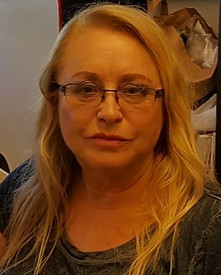
Scholars Bioinformatics and
Machine-Learning Program
Under the guidance of CureScience research scientists, Dr. Igor Tsigelny and Dr. Valentina Kouznetsova, students will conduct original, innovative research projects specifically in computational biology, machine learning, and artificial intelligence. A weekly hour and a half lecture for the students will be conducted by the CureScience research scientists, Dr. Igor Tsigelny and Dr. Valentina Kouznetsova. Students are encouraged to dedicate an adequate amount of time each day to focus on their independent project. Students will also have an opportunity to explore scientific careers with CureScience research scientists.
TM
TM
TM
Program Semesters

Training
-
Experience utilizing a variety of computational tools for biomedical informatics.
-
Lectures on a number of topics related to the program including but not limited to:
-
Learning about biomedical data analysis
-
Work with experienced faculty
-
Work with a designated Mentor
-
Program Topics
-
Intro to Scientific Research
-
Basics of Machine-Learning
-
Intro to Bioinformatics
-
Basics of Biochemistry
Eligibility
On a limited basis, the training program is available for undergraduate and high-school students from diverse backgrounds. The course is limited to the first eligible 20 students. We encourage under-represented minority students.
Program Fee
There is a one-time fee of $2,500 for students accepted into the program.
Financial considerations will be given as required by our Program Director.
Disclaimer: The cost of the program is non-refundable.
Testimonials
Miles K.
High School Student
"I would recommend the program to anyone who is interested in learning more about computational biology. I enjoyed the fact that I got to do much of the project myself, which taught me various useful skills. I was trained in using DAVID to find pathway information and WEKA to trail ML models. I am currently working on a project where I am predicting the radiosensitivity of tumors using genetic biomarkers and machine learning."
Vishnu A.
"I wanted to take a moment to express my heartfelt gratitude for inspiring my interest in computational biology through the opportunity given to work on a research project. As a result of the guidance and mentorship, I have developed a passion for this field and it has motivated me to undertake a project on using machine learning to repurpose FDA-approved drugs for the treatment of Diabetic Cardiomyopathy. I am thrilled to share with you that the project has been successful. At the Greater SD Science Fair, I received the Grand Award runner up and have also qualified for the California Science and Engineering Fair. This achievement would not have been possible without the foundational knowledge and skills I acquired through your guidance and support."
Frequently Asked Questions (FAQs)
What is the cost of the program?
A one-time fee of $2500. Financial considerations will be given as required.
I do not have (or only have limited) clinical, biomedical, and/or informatics background. Am I still encouraged to apply?
Yes, all applicants are encouraged to apply. Our trainees come from a diverse pool, some of whom have no formal clinical, biomedical, and/or informatics training/experiences.
Will there be an opportunity to work as intern after the training program?
Yes, exceptional candidates will be given an opportunity to work with our scientists over a period of time with a stipend. However, this requires a case-by-case evaluation.
I cannot fully attend the program. Would this still be okay?
Unfortunately, we would expect our trainees to fully attend the program. This is because we would like to make sure our trainees have enough time for a more complete research experience, and we have a structured program (including lectures, and final presentation conference) that we would like every trainee to attend.
Are there resources for travel to San Diego or housing in San Diego?
This program is primarily an online study program, so in most cases you would not need to visit San Diego.
Do I need to have anything to bring to the internship?
We recommend you have your personal laptop/computing device.
I have more questions?
Reach us: info@curescience.org
Program Curriculum
-
Scientific Research
-
Stages of Theoretical Scientific Research
-
Problem Stating, Goal Setting, Objectives Selecting
-
Methods of Theorectical Scientific Research
-
Methods Flowcharts
-
-
Useful Tools for Theoretical Scientific Research
-
Important Software for Theoretical Scientific Research in Bioinformatics
-
-
How to Write a Scientific Paper
-
Types of Scientific Paper
-
References
-
Plagiarism Detection
-
-
-
Biochemistry
-
Basics
-
Organic Nomenclature
-
Chemical Bonds (especially Hydrogen Bonds)
-
Functional Groups (Definition, Hydroxyl, Methyl, Carbonyl, Carboxyl, Amino, Phosphate, and Sulfhydryl, etc.)
-
Chemical Compounds of Living Systems
-
-
Structure and Function of Important Biomolecules
-
Carbohydrates, Lipids, Nucleic Acids, and Proteins -- Review
-
DNA and RNA
-
Nucleic Acids
-
-
MicroRNAs
-
Proteins
-
Amino Acids
-
-
Signaling Pathways
-
Metabolism and Metabolites
-
Advanced Glycation End Products
-
-
Epigenetics
-
DNA Methylation and Phosphorylation
-
Histone Modification
-
Various RNA-Mediated Processes
-
-
-
Biology
-
Taxonomy
-
Microbiota and Microbiome
-
Phages
-
-
Virome
-
Fungi
-
-
Artificial Intelligence and Machine Learning
-
History of Artificial Intelligence
-
Definition
-
History
-
Taxonomy
-
-
Machine Learning
-
Supervised Machine Learning
-
Unsupervised Machine Learning
-
Semi-Supervised Machine Learning
-
Reinforcement Machine Learning
-
Learning-to-Learn Machine Learning
-
-
Deep Learning
-
Data Mining for Scientific Discovery
-
Descriptors
-
The AI Approach to Diagnosing and Curing Disease
-


